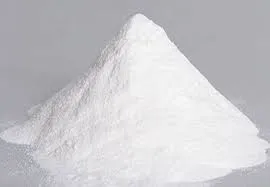
Ogo . 06, 2024 08:41 Back to list
Innovative Applications and Benefits of Dispersible Polymer Powders in Modern Industries
The Versatility of Dispersible Polymer Powder
Dispersible polymer powder (DPP) has emerged as a significant advancement in the field of materials science, with applications spanning various industries such as construction, cosmetics, textiles, and coatings. This versatile material presents unique properties that enable its effective use in enhancing product performance and sustainability.
At its core, dispersible polymer powder is a dry, powdered form of polymer that can be easily dispersed in water or other solvents. This characteristic allows for a convenient and efficient form of delivery when compared to traditional liquid counterparts. When mixed with water, the powder rehydrates and forms a viscous solution that retains the functional properties of the polymer, making it particularly valuable in different formulations.
One of the primary advantages of using dispersible polymer powder is its ability to improve the mechanical properties of materials. In the construction industry, for instance, DPP is often incorporated into formulations for adhesives, sealants, and mortars. The addition of polymer powder enhances flexibility, adhesion, and resistance to environmental elements, leading to longer-lasting and more durable products. It also helps to reduce the porosity of the mixed material, improving water resistance and overall performance.
Moreover, DPP contributes to energy efficiency. Since the powder can be produced and transported in a dry state, it reduces the need for solvents, lowering the overall carbon footprint associated with the formulation process. This is particularly advantageous in achieving compliance with environmental regulations and promoting sustainable practices.
dispersible polymer powder

Another significant benefit of dispersible polymer powder lies in its potential for customization. Manufacturers can tailor the properties of the powder to suit specific applications. Variations in particle size, polymer chemistry, and formulation can yield characteristics such as enhanced water resistance, increased elasticity, or improved adhesion. This flexibility allows formulators to create products that meet exact performance criteria, broadening the scope of applications.
In the cosmetic industry, for example, DPP is utilized in the formulation of powders, creams, and emulsions. Its dispersible nature allows for even distribution of pigments and active ingredients, resulting in products that deliver consistent application and performance. Furthermore, the use of polymer powder in cosmetics can enhance skin feel and provide a pleasing texture, making products more desirable to consumers.
The textile industry also benefits greatly from the use of dispersible polymer powder. It is often employed in textile coatings and finishes, providing water resistance, durability, and stain repellency to fabrics. With the growing demand for high-performance textiles, the role of DPP as a functional additive continues to expand, enabling the development of innovative textile products that can withstand rigorous use.
In summary, dispersible polymer powder offers a multitude of benefits across various sectors, making it a vital component in modern formulations. Its ease of use, versatility, and ability to enhance product performance without compromising environmental standards position it as a preferred choice for manufacturers. As industries continue to evolve and the demand for sustainable and high-performance materials grows, the role of dispersible polymer powder is likely to become even more prominent, driving innovation and efficiency in product development.
-
Versatile Hpmc Uses in Different Industries
NewsJun.19,2025
-
Redispersible Powder's Role in Enhancing Durability of Construction Products
NewsJun.19,2025
-
Hydroxyethyl Cellulose Applications Driving Green Industrial Processes
NewsJun.19,2025
-
Exploring Different Redispersible Polymer Powder
NewsJun.19,2025
-
Choosing the Right Mortar Bonding Agent
NewsJun.19,2025
-
Applications and Significance of China Hpmc in Modern Industries
NewsJun.19,2025







